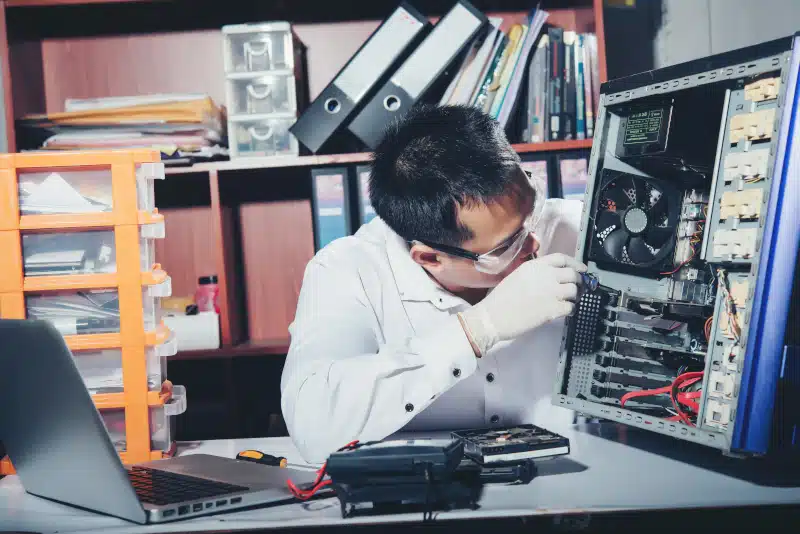Repair or replace a computer is a pivotal decision users face when confronted with a malfunctioning machine.
Computer systems can quickly become obsolete or encounter malfunctions as technology advances rapidly. This can leave users in a difficult position, deciding whether to repair their current machine or invest in a new one. To help guide you through this decision-making process, let’s look at the factors to consider.
Repairing Your Computer: Economical Solutions
Repairing a computer can be cost-effective, especially when the issue is isolated and doesn’t compromise the overall performance. If your computer is experiencing minor glitches, such as slow processing or a malfunctioning component, a targeted repair might be the key to revitalizing its functionality.
Transitioning from the decision phase to the action phase, it’s crucial to assess the specific problem. Identifying the root cause allows for a more accurate estimation of repair costs. Skilled technicians can conduct comprehensive diagnostics to pinpoint issues, offering transparent quotes based on the complexity of the task.
Additionally, seeking professional assistance can provide insights into whether the problem is recurrent and likely to persist, influencing the long-term viability of a repair. When repair costs align with the computer’s current value and expected lifespan, opting for repairs can be prudent. This approach ensures you get the most out of your initial investment without prematurely replacing a machine with potential.
Regular maintenance, such as cleaning out dust and updating software, can also contribute to the longevity of your computer. When considering repairs, weighing short-term costs against the extended lifespan and improved performance that a well-executed repair can offer is essential. Engaging in proactive measures, like regular check-ups and prompt issue resolution, can turn your computer into a reliable workhorse for years.
Replacing Your Computer: Embracing Technological Advancements
On the other hand, with the constant advancements in digital technology, older computers may not be supported by new features and applications. In such cases, upgrading to a new PC is a practical solution to improve compatibility and performance.
When transitioning to the decision-making process, it is crucial to evaluate the long-term benefits of investing in a new system. Consider improved processing speed, upgraded hardware, and seamless integration with contemporary software.
Upgrading to a new computer addresses current issues and future-proofs your setup, ensuring compatibility with upcoming software and technologies. While the initial cost may be higher, the long-term advantages often justify the investment, providing a smoother and more efficient computing experience.
In conclusion, deciding to repair or replace a computer hinges on carefully analyzing the specific issues at hand and considering long-term goals and technological advancements. By weighing the pros and cons, users can navigate the ever-changing digital landscape and make choices that align with their budget and performance expectations.
If you find yourself grappling with computer issues, trust PCMechanic Computer Repair in Davenport, FL, to provide expert assessments and reliable solutions tailored to maximize your device’s lifespan. Contact me today for personalized assistance and take the first step towards a seamlessly functioning computer that meets your needs.


